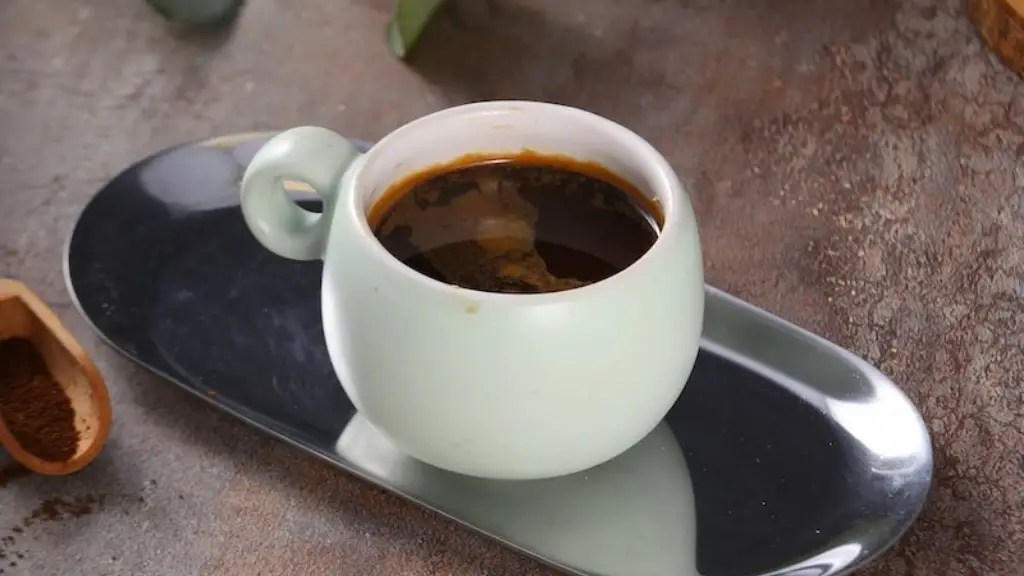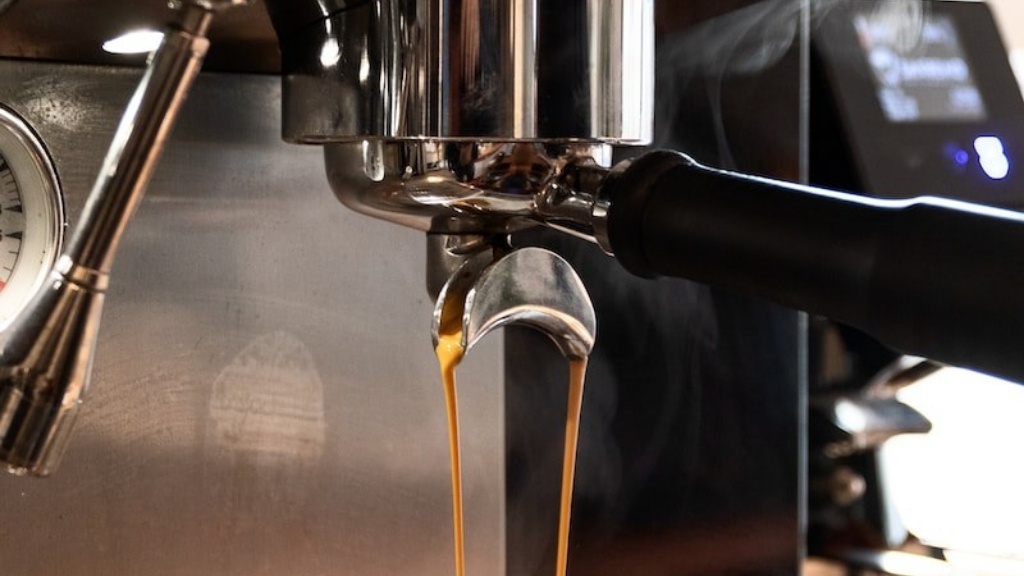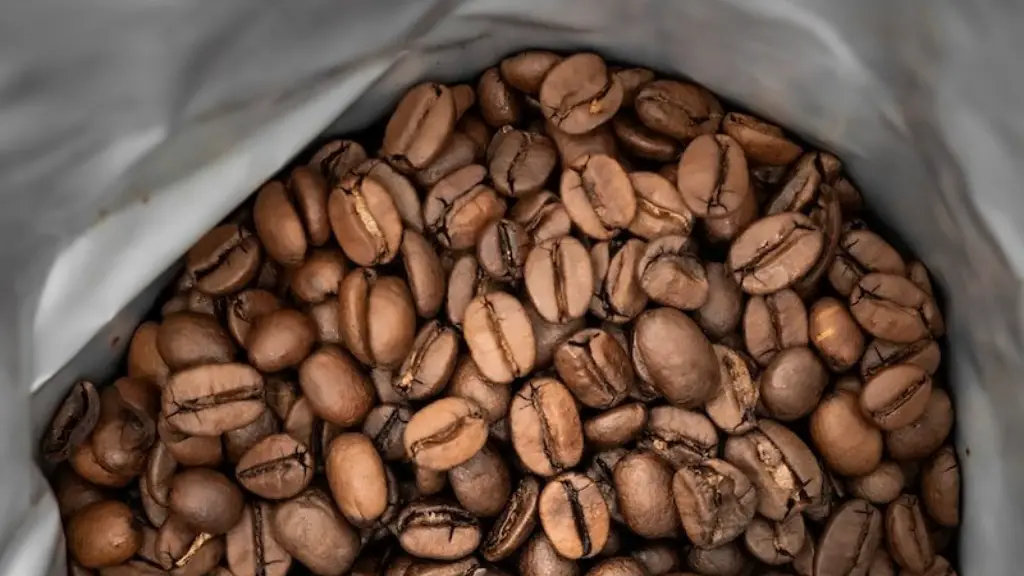What is Ready to Drink Coffee?
Ready to drink coffee (RTD) is an instant coffee beverage that has been formulated to provide an on-the-go coffee experience. Rather than having to grind beans and prepare fresh coffee, RTD coffee is a premade formula that can be purchased in single-serving containers or bottles and consumed without the need for brewing.
RTD coffee has been created in a variety of coffee flavors to meet the needs of coffee drinkers, from espresso to cappuccino. RTD coffee is often sweetened with flavors such as vanilla or caramel, and is readily available from most convenience stores, markets, and supermarkets. Its popularity has grown over the years, as more people have grown to enjoy the convenience and portability of drinking coffee on the go.
Experts in the coffee industry agree that RTD products can offer a higher level of convenience compared to other coffee options. RTD coffee is easy to work with and is extremely portable, while it also allows people to simply grab an iced coffee and go. Additionally, RTD coffee tends to be of a greater quality than other alternative coffee beverages, such as instant coffee, cold brew coffee, or canned espresso drinks.
One unique advantage of RTD coffee is its long shelf life. RTD coffee can be stored for years if sealed and refrigerated, and can be enjoyed outside of its comfort zone. Additionally, RTD coffee is often more affordable than traditional coffees, allowing for a more convenient yet economical way to enjoy a cup of coffee. As the popularity of RTD coffee continues to rise, so too does the variety of flavors and styles available to consumers.
A major concern with RTD coffee is the amount of sugar and calories it can contain. It is important to read labels carefully before consuming any RTD coffee product, as many of these contain added sugar and calories, as well as preservatives. This may be a significant factor when deciding whether or not to purchase RTD coffee, and understanding the nutritional content of any RTDs consumed is essential.
Advantages of Ready to Drink Coffee
One of the key advantages of RTD coffee is that it can be consumed without preparation. This eliminates the need to grind beans, brew coffee, and transfer the liquid from one place to another. This makes RTD coffee a convenient option for on-the-go coffee drinkers, and allows them to quickly and easily get their caffeine fix.
Additionally, RTD coffee comes in many different flavors and styles. From a creamy cappuccino to an iced latte, and from a robust espresso to a classic cold brew, consumers have a plethora of options when it comes to choosing their on-the-go beverage. RTD coffee also provides a long-lasting shelf life, so it’s easy to store for later use.
Finally, RTD coffee tends to be more affordable than other coffee options. This is because RTD coffee is a premade formula that requires minimal work to produce, compared to traditional coffees which must be ground, brewed, and prepared each time they are served. RTD coffee is an ideal way to get the same taste at a fraction of the cost, and can provide an economical option for coffee drinkers on the go.
Disadvantages of Ready to Drink Coffee
One major downside to RTD coffee is that it often contains high amounts of sugar and calories. Since RTD coffee is made with a premade syrup or concentrate, it can contain large amounts of sugar and calories that may not be ideal for those trying to monitor their sugar or calorie intake. As a result, it is essential to read labels carefully before consuming any RTD product, and understanding the nutritional content of any RTDs consumed is essential.
Another disadvantage of RTD coffee is that it can be difficult to get the same level of quality as one would get from freshly brewed coffee. As with any type of pre-made product, RTD coffee can lack some of the nuances and flavors of freshly brewed coffee, making it difficult to get the same quality as what one would receive from an artisanal shop.
Finally, some RTD coffee products are not made with the same high-quality ingredients as some of the more artisanal products. This means that there may be more artificial ingredients, preservatives, and sweeteners used than would be found in advanced coffees. This could lead to an artificial taste and a lower quality cup of coffee, especially when compared to a freshly brewed coffee made with quality beans.
Relevance of Ready to Drink Coffee in Today’s Society
The popularity of RTD coffee has been steadily growing in recent years, as more people have grown to appreciate the convenience and portability of these beverages. As the world has become busier and more on-the-go lifestyles have become normalized, having access to a cup of coffee without having to brew it has become a necessity for many people. RTD coffee has allowed for a rapid solution to getting their daily caffeine fix, and its popularity has grown as a result.
RTD coffee companies have also been one of the few industries to actually thrive in the pandemic. People looking for a convenient, on-the-go beverage to enjoy while they go about their lives have looked to RTD coffee in droves, and many of the more popular brands have seen significant growth. Additionally, companies are also trying to capitalize on this by offering more variety and flavors, allowing people to have access to a wide selection of RTD coffees to choose from.
Overall, RTD coffee has become an essential part of life for many. It provides an easy, affordable, and convenient way to get a cup of coffee, and can be as simple or as complex as one would like. RTD coffee is often a more economical option compared to traditional coffee, and its popularity continues to grow as more people enjoy the convenience and portability it offers.
Ready to Drink Coffee Varieties
RTD coffee comes in many different flavors and varieties, allowing coffee drinkers to find the perfect beverage to suit their needs. Many popular RTDs are espresso-based and are available in single-serve containers or bottles, while some premade RTDs are made with cold brew coffee. Additionally, many RTDs are now flavored with other ingredients such as vanilla, almond, or chocolate, allowing for an even broader spectrum of taste.
Iced coffees are a popular RTD coffee choice and are generally made with a concentrate or syrup that has been sweetened with sugar or other sweeteners. These can be either pre-flavored or unsweetened, allowing for a greater range of flavor profiles to choose from. Additionally, many RTD iced coffees come in smaller sizes and are often canned, allowing for a more compact method of consumption.
Canned espresso drinks have also become a popular choice for many coffee drinkers, allowing for a quick and easy way to get a hit of espresso. Many of these drinks are made with espresso, milk, and other ingredients to create a creamy and sweet espresso-based drink. These drinks are often pre-flavored, eliminating the need to add any sweetener or cream to get a delicious drink.
Finally, cold brew coffees are also becoming increasingly popular with RTD coffee drinkers. Cold brew coffees are brewed using cold water and can be enjoyed either iced or hot. Cold brew coffees tend to be more concentrated than traditional coffees and are generally more robust, allowing for a fuller-bodied drink. Additionally, cold brew coffees are often made with higher quality ingredients, allowing for a higher quality experience than pre-made coffees.
Environmental Impact of Ready to Drink Coffee
As with any food or beverage product, RTD coffee does have an environmental impact that must be considered before consumption. The majority of RTD coffee containers are made of plastic, which is a non-biodegradable resource that does not decompose easily. As a result, it is important to consider the impact of the container when consuming RTD coffee, and to try to purchase RTD coffee products in recyclable containers whenever possible.
Other aspects of RTD coffee production, such as the packaging and transportation of RTD coffee products, can also have significant environmental impacts. Many of the ingredients in RTD coffee products must be shipped from other countries, leading to increased emissions and potential environmental contamination. Additionally, RTD coffees often contain artificial ingredients and preservatives, which can lead to increased waste. Understanding the environmental effects of RTD coffee production is essential to ensure that production is as sustainable as possible.
Finally, it is important to be mindful of the impact of RTD coffees on wildlife. As many RTD coffees are made with sweeteners and artificial ingredients, there is a risk that wildlife can become attracted to unattended RTD coffee containers, leading to additional waste. It is important to be mindful of the potential harm these products can have on wildlife, and to ensure that RTD coffee containers are disposed of correctly and not left behind in any popular wildlife areas.
Health Risks of Ready to Drink Coffee
When it comes to RTD coffees, there are some potential health risks that need to be taken into account. As mentioned earlier, many RTD coffees contain significant amounts of sugar and other sweeteners, as well as preservatives, calories, and fat. As such, it is important to read labels carefully before consuming RTD coffee, and to understand the nutritional content of any RTDs consumed. Additionally, RTD coffees can also contain high levels of caffeine, so it is important to be mindful of any personal health limitations that may be present when consuming RTD coffee.
It is also important to be aware of the potential interactions that RTD coffee could have with medications. Many medications, such as diuretics, antidepressants, and anticonvulsants, can interact adversely with caffeine, so it is essential to check with a doctor before consuming RTD coffee if taking any medications. Additionally, as with any caffeinated beverage, it is important to be mindful of the amount of caffeine being consumed and to only do so in moderation.
Finally, it is important to understand the potential link between RTD coffee and cancer. Although this link has yet to be confirmed, there are studies that suggest that ingestion of RTD coffee sweetened with artificial ingredients can increase the risk of certain cancers. It is important to be cautious when consuming RTD coffees, especially when sweetened with artificial ingredients, and to consider avoiding RTD coffee altogether if at all possible.





